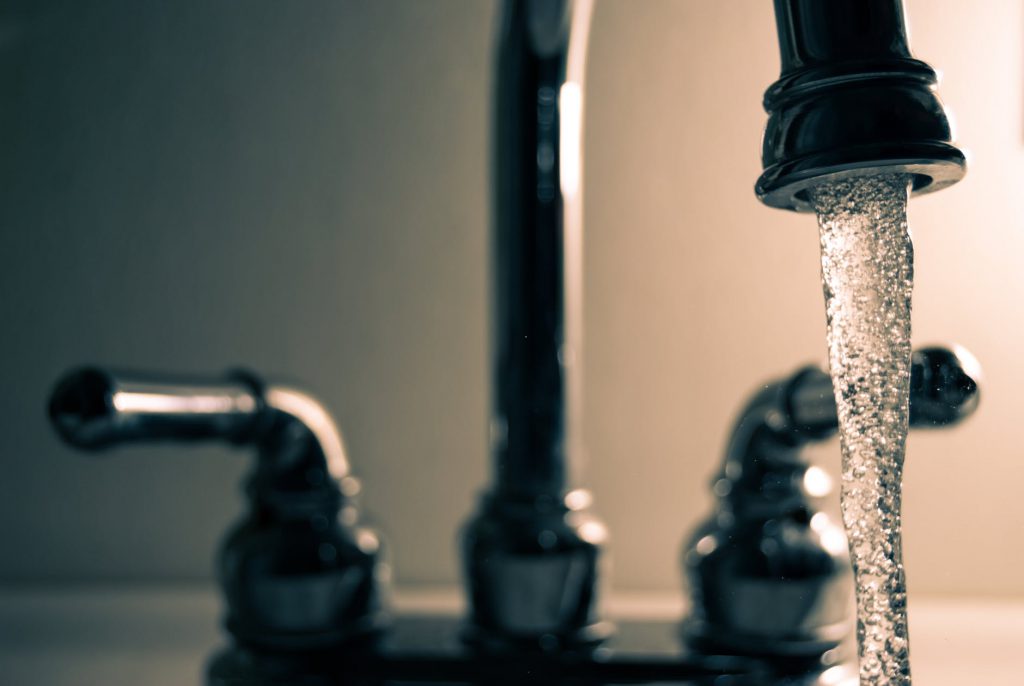Council Approves Water Rate Increase
Three council members object to plan that raises annual cost by $7.
The Milwaukee Common Council voted Tuesday to raise water rates by three percent, but not before three council members objected.
The average residential customer will see their water bill increase $7 a year under a proposal by the city-owned Milwaukee Water Works. The utility provides water to Milwaukee and 15 suburban communities.
Water Works superintendent Karen Dettmer described the proposal as “fairly modest for a residential consumer, but significant for our bottom line.” The change is expected to net the utility $2.7 million in 2020. It will not go into effect before August 31st and still needs regulatory approval from the Wisconsin Public Service Commission.
The Milwaukee Water Works is eligible to apply for a rate adjustment using the Simplified Rate Case process because one full calendar year has elapsed since the last rate adjustment in September 2017 and the utility’s rate of return of 3.04 percent is below the Public Service Commission of Wisconsin’s benchmark rate of return of 5.7 percent,” states the authorizing resolution.
His argument didn’t sway three of his colleagues. Council members Mark Borkowski, Khalif Rainey and Russell W. Stamper, II voted against the increase.
Rainey said he voted against the increase to protect his constituents, many of whom are on fixed incomes. “They feel like they’re being gouged left and right,” said the 7th District alderman in an interview.
Stamper called it a tax on those who can least afford it. “On the backs of my community, you can’t keep increasing fees,” said Stamper in an interview. He said his district, the city’s poorest by average property value, already is pressured by other fee increases and fines from code enforcement.
Asked if he was concerned about the utility’s ability to fund lead lateral replacement if the rates weren’t increased, Stamper said he believes money needs to come from the state and other sources. The utility, which has a $153 million budget in 2019, leads the city’s effort to replace lead services lines. The cost of replacing the publicly-owned portion of the approximately 70,000 lead laterals in Milwaukee was estimated at $750 million in early 2018.
Borkowski, consistent with his vote at committee, voted against the increase, but did not explain his position.
The change will directly impact residents of Milwaukee, Greenfield, Hales Corners, St. Francis and West Milwaukee. The city also sells water at a wholesale rate to Brown Deer, Butler, Franklin, Greendale, Menomonee Falls, Mequon, New Berlin, Shorewood, Thiensville, Wauwatosa, West Allis and the Milwaukee County Grounds, which in turn resell it at their own rates. The city has approved selling water to Waukesha, but the work to connect the two cities is not yet complete.
The city is able to derive a profit from the utility relative to its book value. In 2019, the utility is budgeted to transfer $13.3 million to the city’s general fund, up from $12.7 million in 2018. Much of the utility’s budget is heavily controlled by the Public Service Commission, including how many miles of water mains the utility must replace annually.
If you think stories like this are important, become a member of Urban Milwaukee and help support real independent journalism. Plus you get some cool added benefits, all detailed here.
Legislation Link - Urban Milwaukee members see direct links to legislation mentioned in this article. Join today
City Hall
-
Council Blocked In Fight To Oversee Top City Officials
 Dec 16th, 2025 by Jeramey Jannene
Dec 16th, 2025 by Jeramey Jannene
-
Latest Effort to Adopt New Milwaukee Flag Going Nowhere
 Dec 3rd, 2025 by Jeramey Jannene
Dec 3rd, 2025 by Jeramey Jannene
-
After Deadly May Fire, Milwaukee Adds New Safety Requirements
 Dec 2nd, 2025 by Jeramey Jannene
Dec 2nd, 2025 by Jeramey Jannene






















